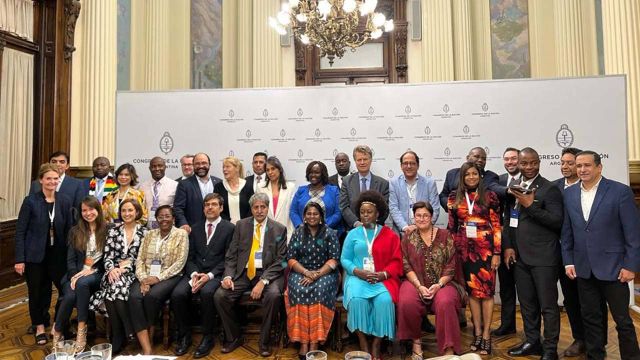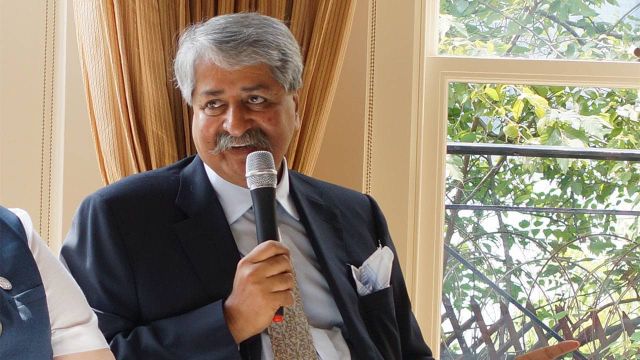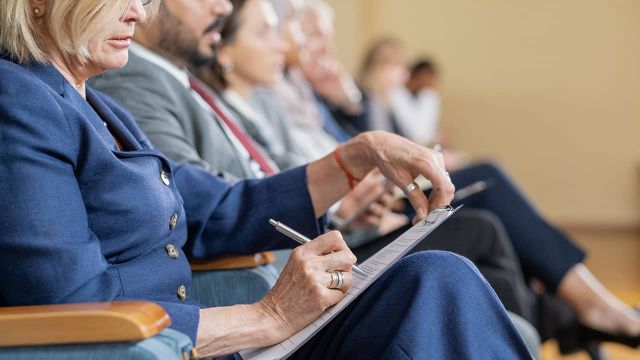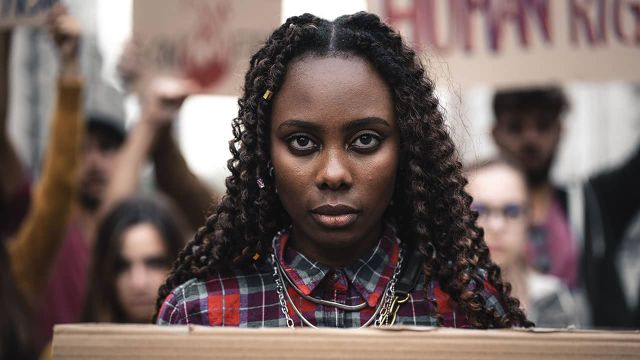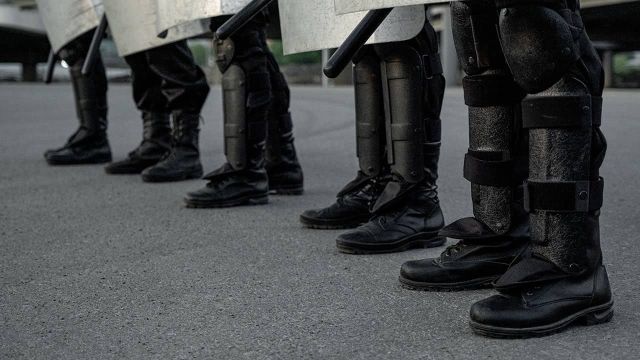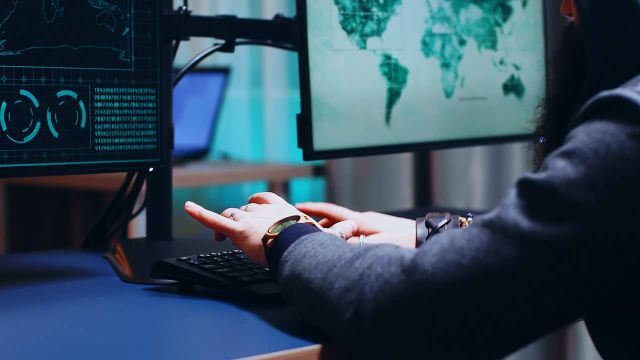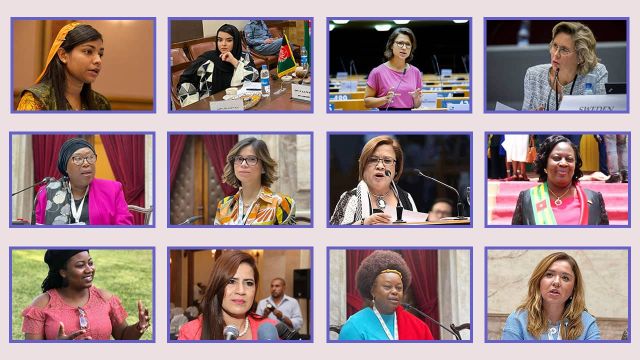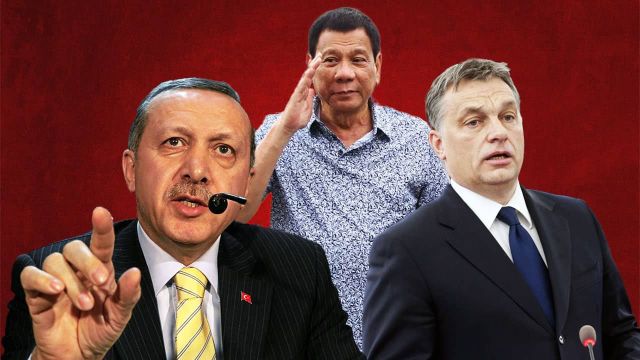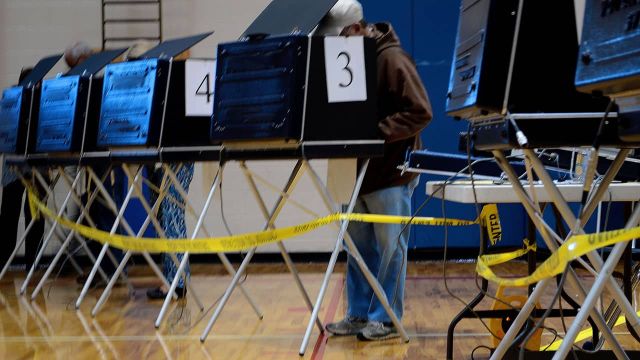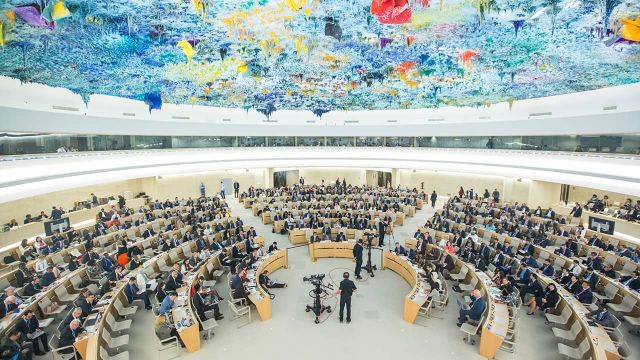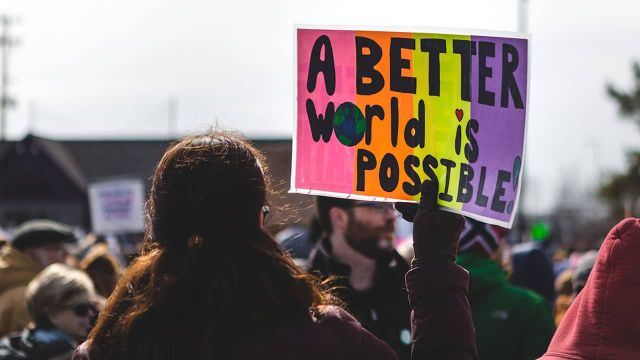5.1 Elections
In 2024, 40 countries will hold elections, and the people take to the polls to elect their representatives.
The Universal Declaration of Human Rights (Article 21), the International Covenant on Civil and Political Rights (Article 25), and other international covenants provide that elections are key features of any genuine democracy and are the will of the people. There can be no legitimate democracy without elections, even if democracy requires more than just elections. Citizens have a fundamental right to determine the course of public affairs through their representatives. Elections allow citizens to ensure the accountability of their leaders, and the citizenry can vote an incumbent out of office, for instance. Elections are the primary means of peaceful transfer of political power and an important way for voters to express their will and ensure that their interests and those of the national government align to achieve specific goals. Genuine, peaceful, fair, and free elections foster sustainable development and are foundational to good and responsive governance. Elections are a democratic process, not just an occurrence on a given day; therefore, public confidence is fundamental for the validity and legitimacy of the process. When this element is lacking, populist candidates may discredit election results.
A country has genuine elections when they are characterized by:
- Transparency. Each part of the electoral process is open to scrutiny. Relevant stakeholders can independently verify the integrity of the process. The principle of transparency is key for the preservation of the right of citizens to seek, receive, and share information.
- Competitiveness. Citizens have equitable opportunities to run and be elected to office. Political competition is a central component of elections, reflecting people's will.
- Inclusiveness. All eligible citizens have equal opportunities to participate in the electoral process to select their representatives.
- Accountability. Citizens have the right to scrutinize the conduct of electoral stakeholders, including that of the government, election management bodies, political parties, candidates, and security forces.1
Because elections are essential for the health of liberal democracies, all relevant stakeholders must tackle threats to them, ranging from fraud on Election Day to manipulation by the media and regulatory impediments during political campaigns.
Case studies
In the Digital Election Interference Report, Freedom House determined that domestic actors abused information technology the most to subvert electoral processes. This is the conclusion of an analysis of 30 countries that held elections or referenda during the period covered and found three primary forms of digital election interference:
- Informational measures, in which online discussions are surreptitiously manipulated in favor of the government or particular parties;
- Technical measures used to restrict access to news sources, communication tools, and in some cases, the entire internet; and
- Legal measures through which authorities punish regime opponents and curtail political expression.
Another important observation of the report is that in many countries, extremist political parties seem better equipped than other moderate parties to take advantage of social media. Far-right groups are more successful at exploiting social media because false, shocking, negative, exaggerated, and emotionally charged content spreads faster than other content. The absence of mechanisms dedicated to identifying such threats and efficiently addressing them allows illiberal regimes, autocratic leaders, and extreme political groups to spread hate speech, misinform, entrench polarization, and ultimately negatively influence the integrity of the electoral process, contributing to democratic backsliding.
“Even in countries where democratic institutions are fairly robust, citizens increasingly rely on digital technologies to participate in political affairs and engage in urgent policy debates. Social media in democracies are used to mobilize public support on a host of issues, such as minority rights, environmental protection, safer gun laws, and improved health care. The onus is on policymakers, the private sector, and civil society to make sure that these positive uses of the internet are protected - at home and abroad - from the forms of malicious interference described above. This will mean years of work to establish clear rules, build tools, and develop programs that meaningfully respond to the grave and growing threat such manipulation poses to the democratic process.”6
Attacks on the integrity of elections have dire consequences on the democratic system, including:
- Reduced voter turnout when voters believe that the election is rigged and that their vote does not matter, which in turn makes individuals less likely to vote in other elections and allows undemocratic forces more space to gain power.
- Increased polarization when voters believe that the opposition is cheating or corrupt. One of the main consequences is that they are less likely to compromise with a side that they believe is corrupt. This situation increases the likelihood of political gridlock.
- Eroded trust in government when voters believe that their government is corrupt which can lead to cynicism and apathy.
Parliamentarians have a responsibility to ensure the transparency of the electoral normative framework and can:7
- Make campaigning financing legislation more robust;
- Define in law what is considered to be a political advertisement;
- Compel social media platforms to make public all information involved in the purchase of an advertisement, including the real identity of the advertiser, the amount spent, targeting criteria, etc.;
- Specify by law the minimum audience segment size for an advertisement;
- Legislate a “cooling-off period” for digital political advertisements at least 48 hours before an election;
- Compel major Internet platforms to provide independent parties with meaningful data about the impact social media has on democracy;
- Promote laws and policies that increase digital and media literacy programs in schools and public interest programming for the general population;
- Approve legislation that equips the electoral authorities with sufficient oversight mechanisms for identifying and thwarting digital electoral interference; and
- Conduct parliamentary hearings with representatives of civil society organizations such as the International Foundation for Electoral Systems, academia, and the private sector dealing with social media platforms.
5.2 Corruption
According to Transparency International, corruption is the “abuse of entrusted power for private gain.”8 Corruption erodes trust in democratic institutions, hinders economic development, and exacerbates societal inequalities, including environmental ones. To tackle corruption systems, all relevant stakeholders, including the citizenry, must understand them, after which the corrupt must be held accountable.
Corruption may take many forms (bribery, nepotism, and other forms of abuse of power for personal gain):
- Public officials asking or taking money for favors in exchange for services.
- Politicians misusing public funds or granting public jobs or contracts to their sponsors, friends, and families.
- Officials being bribed by corporations to get lucrative deals.
In turn, this also weakens the public trust in government institutions: People who believe their government is corrupt are less likely to trust it. This can lead to cynicism and apathy, making it more difficult for the government to function effectively.
Corruption challenges threaten the world’s largest economies and, consequently, the global economy. In 2011, G20 leaders recognized corruption as a major issue and decided to create an Anti-Corruption Working Group (ACWG). There were some significant early results, but the political momentum has decreased in recent years.
At the 2021 Rome Summit, the ACWG adopted the new Anti-Corruption Action Plan 2022-2024 which has three overarching objectives:
- Promote the implementation of existing anti-corruption commitments;
- Develop targeted actions in areas where the G20 can best add value; and
- Counter new corruption challenges identified by the international community.
Case studies
Parliamentarians can help tackle corruption in their countries by:
- Approving legislation that helps strengthen institutions such as the independence of the judiciary, the media, and civil society organizations.
- Approving sufficient budgetary allocations for institutions with strong public policies geared toward improving education, health, and respect of fundamental rights and freedoms.
- Enhancing transparency by making information widely available on public expenditure and decision-making processes, including for procurements.
- Increasing the participation of citizens in democratic processes to ensure that the government effectively responds to the peoples’ needs and aspirations.
Addressing corruption is a complex challenge that will take time and concerted effort in this interconnected, globalized world. It is important to “commend efforts and acknowledge progress made in the fight against corruption, through effective collaborations and joint engagements of several institutions, such as joint capacity building between the World Bank Group, UNODC, OECD and civil society organizations, including Transparency International and Accountability Lab.”10
It is also essential to recognize the importance of achieving the Sustainable Development Goals (SDG) and, in particular, SDG 16 on Peace, Justice, and Strong Institutions. Countries must implement the provisions of international instruments to which they are State Parties, including the United Nations Declaration against Corruption and Bribery in International Commercial Transactions; the United Nations Convention Against Corruption; and the 40 recommendations of the Financial Action Task Force (FATF).
Footnotes:
1 Patrick Merloe, Promoting Legal Frameworks for Democratic Elections: An NDI Guide for Developing Election Laws and Law Commentaries.
2 By The Associated Press, Zimbabwe's opposition alleges fraud in vote that extends governing party's rule.
3 Adrian Shahbaz, Allie Funk, Digital Election Interference.
4 Colin Packham, Exclusive: Australia concluded China was behind hack on parliament, political parties – sources, published on 15 September 2019.
5 Anthony Boadle, Facebook's WhatsApp flooded with fake news in Brazil election, published on October 20, 2018.
6 Adrian Shahbaz, Allie Funk, Digital Election Interference.
7 Kofi Annan, PROTECTING ELECTORAL INTEGRITY IN THE DIGITAL AGE, The Report of the Kofi Annan Commission on Elections and Democracy in the Digital Age, published in January 2020.
8 Transparency International, WHAT IS CORRUPTION?.
9 Transparency International, CPI 2022 FOR THE AMERICAS: FERTILE GROUND FOR CRIMINAL NETWORKS AND HUMAN RIGHTS ABUSES, published on 31 January 2023.
10 ICHA 2023: Abidjan’s Call for Collective Action in an Era of Crises, World Bank Group and International Corruption Hunters Alliance, published on 16 June 2023.

